Trying to Understand My Viet-Canadian Identity by Talking to Young Viet-Canadians (có phần tiếng Việt)
NGUỒN
NGUỒN
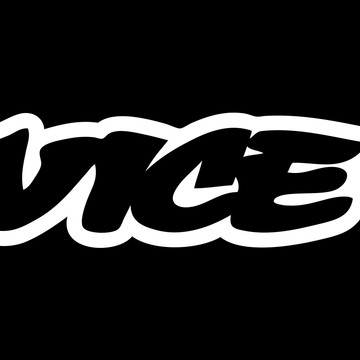
VICE STAFF
Jul 5 2017, 2:35pm
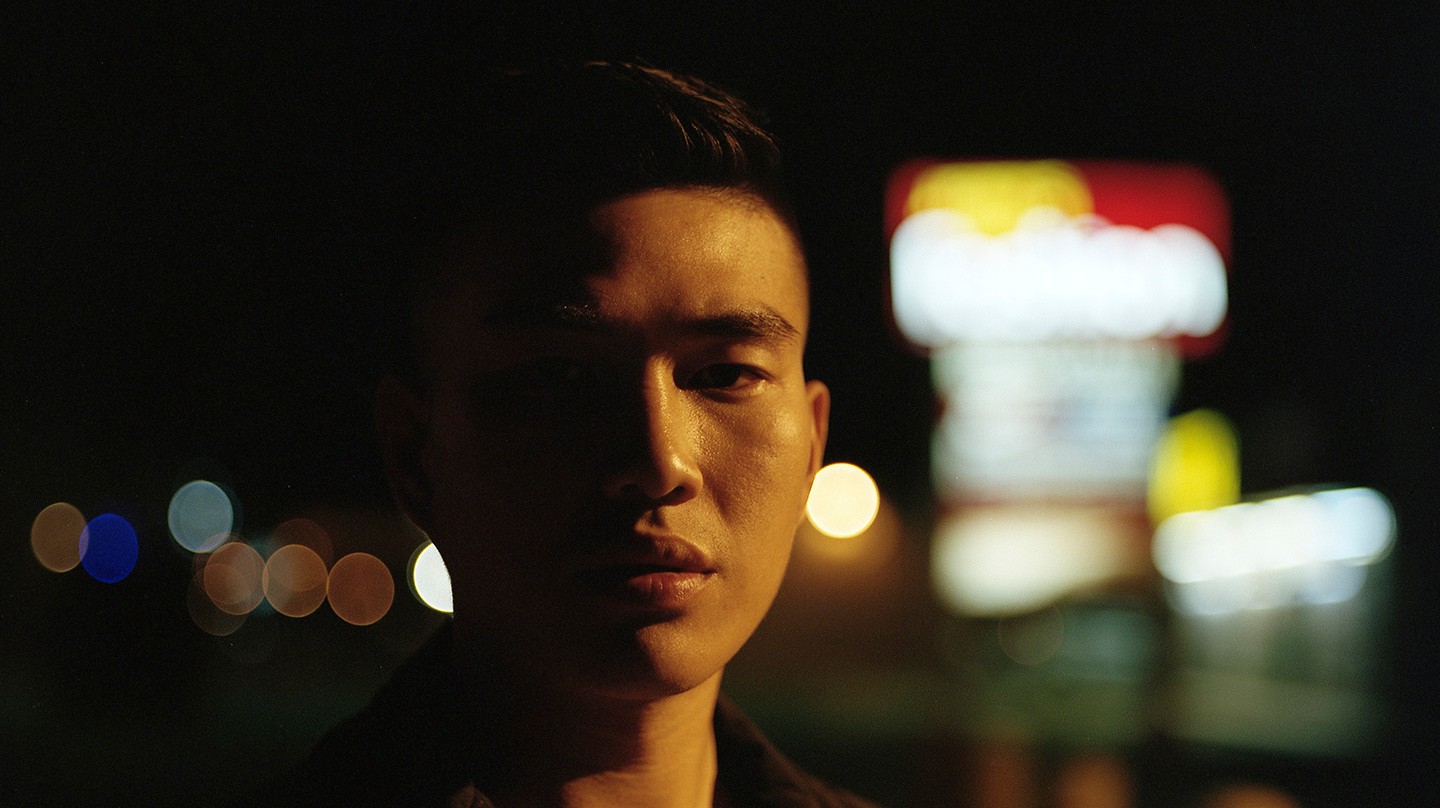
All photos by Nam Phi Dang.
Photographer Nam Phi Dang explores his heritage through portraiture.

Bonding over our common love for skating, art, fashion and cool, weird shit, VICE and Vans partnered to launch Unbound—a new series that enables emerging Canadian creatives to work on what they love.
Being born outside of Canada and brought up by first-gen parents, I had never fully questioned what made me Vietnamese—whether it was cultural practices, language, or simply having parents from Vietnam. I just thought it was natural to be brought up the way I was. But being raised in a western society meant I couldn't always practice what I thought was normal other than at home with family—speaking Vietnamese rarely existed outside of our household.
As an adult, I've realized that I don't know much about my own Vietnamese identity. I decided to meet a community of second-generation Vietnamese-Canadians to ask them the same questions: "How do you identify yourself as Vietnamese person having been raised in a western society? Do you take pride and acknowledge it? Are you motivated to learn and carry on your heritage?"
Despite not having all the answers, this personal body of work has exposed me to a community who have the same questions and same drive to pass on the cultural heritage and history given by our families for future generations.
I asked my parents to translate these interviews into Vietnamese to show that language can play a vital role in cultural identity.
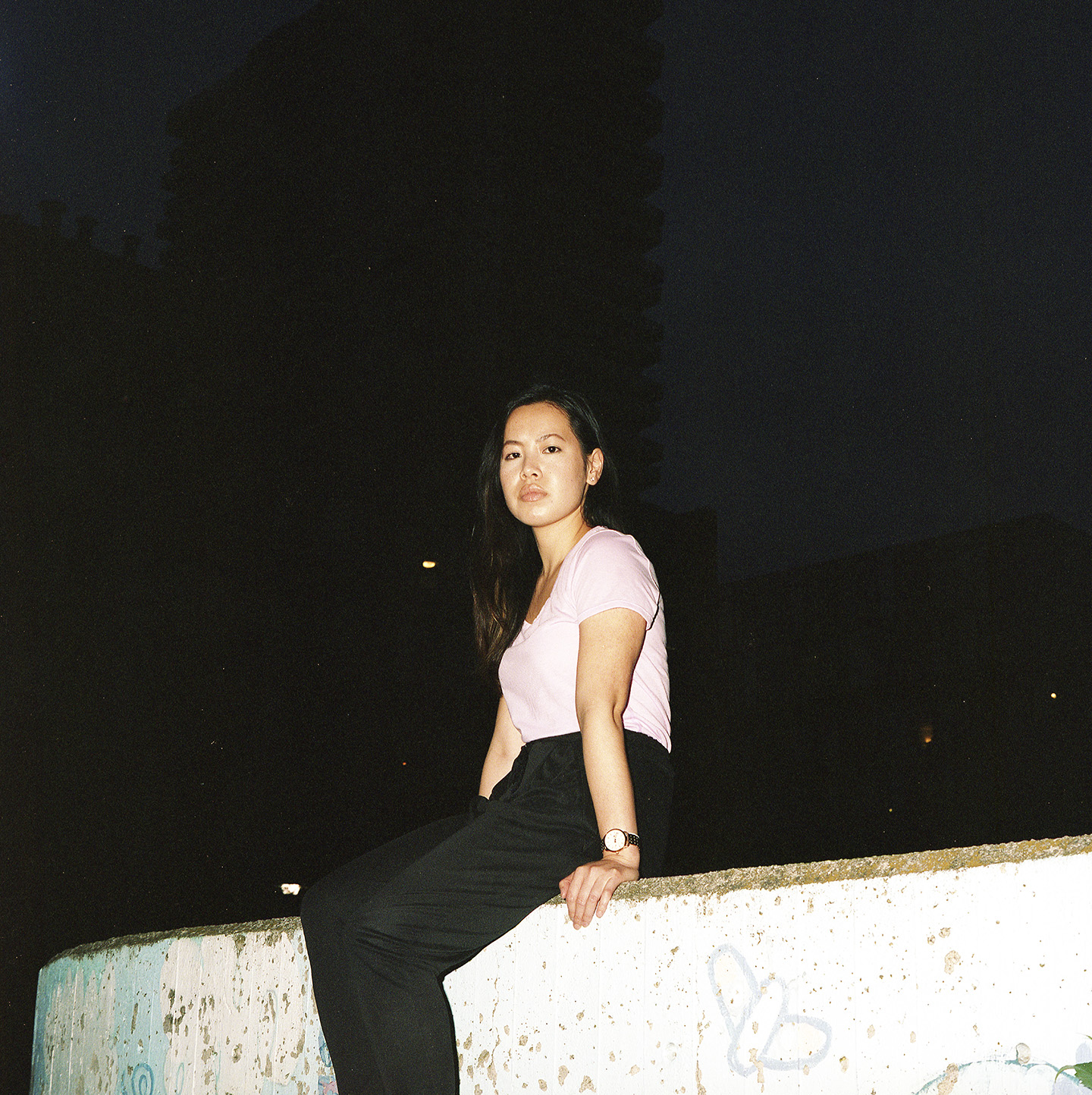
Mai Nguyen
Freelance Writer
I didn't start thinking about my dual identity as a Vietnamese-Canadian until I moved out of my parents' home in Halifax to study journalism at Ryerson University. Before I moved out, I never questioned my Vietnamese identity because I spoke the language every day at home, helped my mom make traditional Vietnamese meals, occasionally went to the Buddhist temple with the whole family, and spent every Sunday with my Vietnamese friends and their families. It's different for everyone, but for me, my family and community was the bridge that connected me to the Vietnamese side of my identity. When I moved out, it was like I didn't have that bridge anymore and slowly I began speaking the language less to the point where I had forgotten really basic words. That's when I began questioning whether I was "Viet enough" and what it meant to have a hyphenated identity.
Phương Mai Nguyễn - Tôi không hề nghĩ tới tình trạng song tịch Việt Nam - Canada của mình cho tới khi rời nhà cha mẹ chuyển tới Halifax để học về môn biên tập truyền thông ở Đại học Ryerson. Trước khi chuyển ra tôi chưa bao giờ hỏi cha mẹ tôi về nguồn gốc Việt,vì tôi nói tiếng Việt hàng ngày ở nhà,giúp mẹ tôi nấu món Việt truyền thống thỉnh thoảng tới chùa cúng Phật cùng cả gia đình, tụ họp với bạn bè Việt và gia đình họ vào mỗi Chủ nhật. Quan niệm mỗi người khác nhau,song với tôi gia đình và cộng đồng là sự kết nối cho tôi biết mình là người Việt. Sau khi chuyển ra ngoài ở sự kết nối đó không còn nữa, tôi nói tiếng Việt ít đi ,thậm chí quên dần những từ ngữ đơn giản nhất, và từ đó tôi tự hỏi, liệu tôi có "đủ là người Việt"không, tình trạng Quốc tịch có gạch nối (-) như vậy có nghĩa là gì.
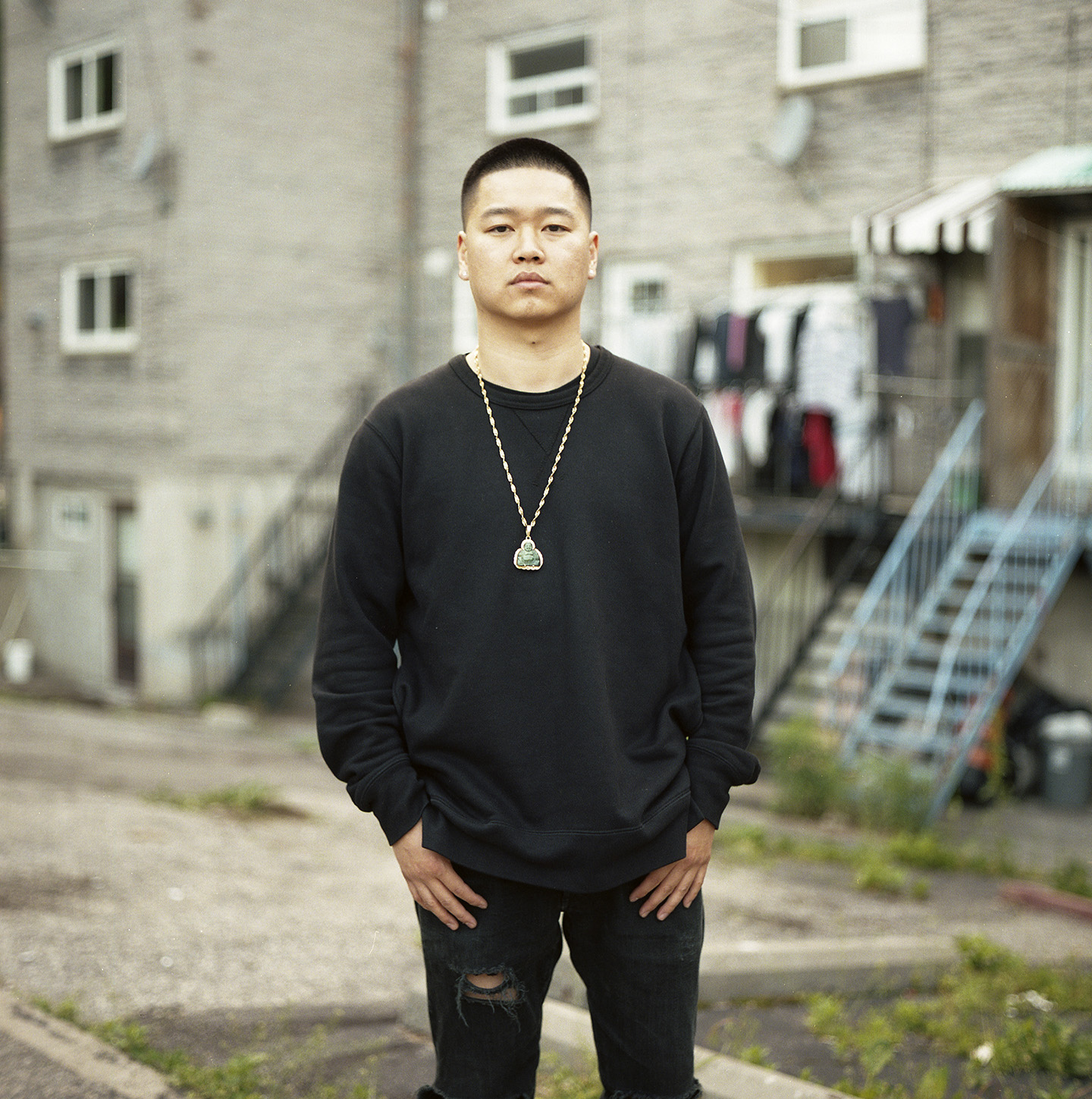
William Nguyen
Entrepreneur – HEIR Kid, Get Fresh Company, Lost and Found
As much as I was ambivalent towards growing up as Vietnamese, I now take pride in how much it has made me who I am today. It's contributed to my work ethic, my personality, and my soul. I want my son to know that it's not just a language or cultural practice that's done at home—but that we are all multi-dimensional people, and his Vietnamese identity is a huge part of him just how it has been for me. I hope he doesn't believe that he's just Canadian or that Canada has made him, but understands that if my parents never came to Canada and brought me up on their traits and values, I would not be able to pass them down to him and be the parent I am today.
William Liêm Nguyễn - Có thể nói là tôi mâu thuẫn, cũng có thể nói là tôi chán vì mình đã sinh ra là người Việt , nhưng rồi tôi đã nhận biết được và rất tự hào về cội nguồn Việt đã tạo dựng lên con người tôi ngày hôm nay,tạo cho tôi một đạo đức nghề nghiệp và nhân cách mà tôi sở hữu. Tôi muốn con trai tôi sau này sẽ hiểu rằng , không phải chỉ học ngôn Ngữ văn hóa ở nhà mà phải học ở cả thế giới bên ngoài. Nhân sinh rất đa dạng, là người Việt sinh trưởng ở nước ngoài sẽ là một phần lớn trong cuộc đời nó cũng giống như tôi vậy. Tôi hy vọng và tin rằng không phải là đất nước hay con người Canada tạo dựng ra nó. nếu như cha mẹ tôi không tới đây và nuôi nấng dạy dỗ tôi một cách chuẩn mực, thì tôi sẽ không thể truyền lại cho con tôi về nguồn gốc Việt và trở thành người cha như tôi ngày hôm nay.
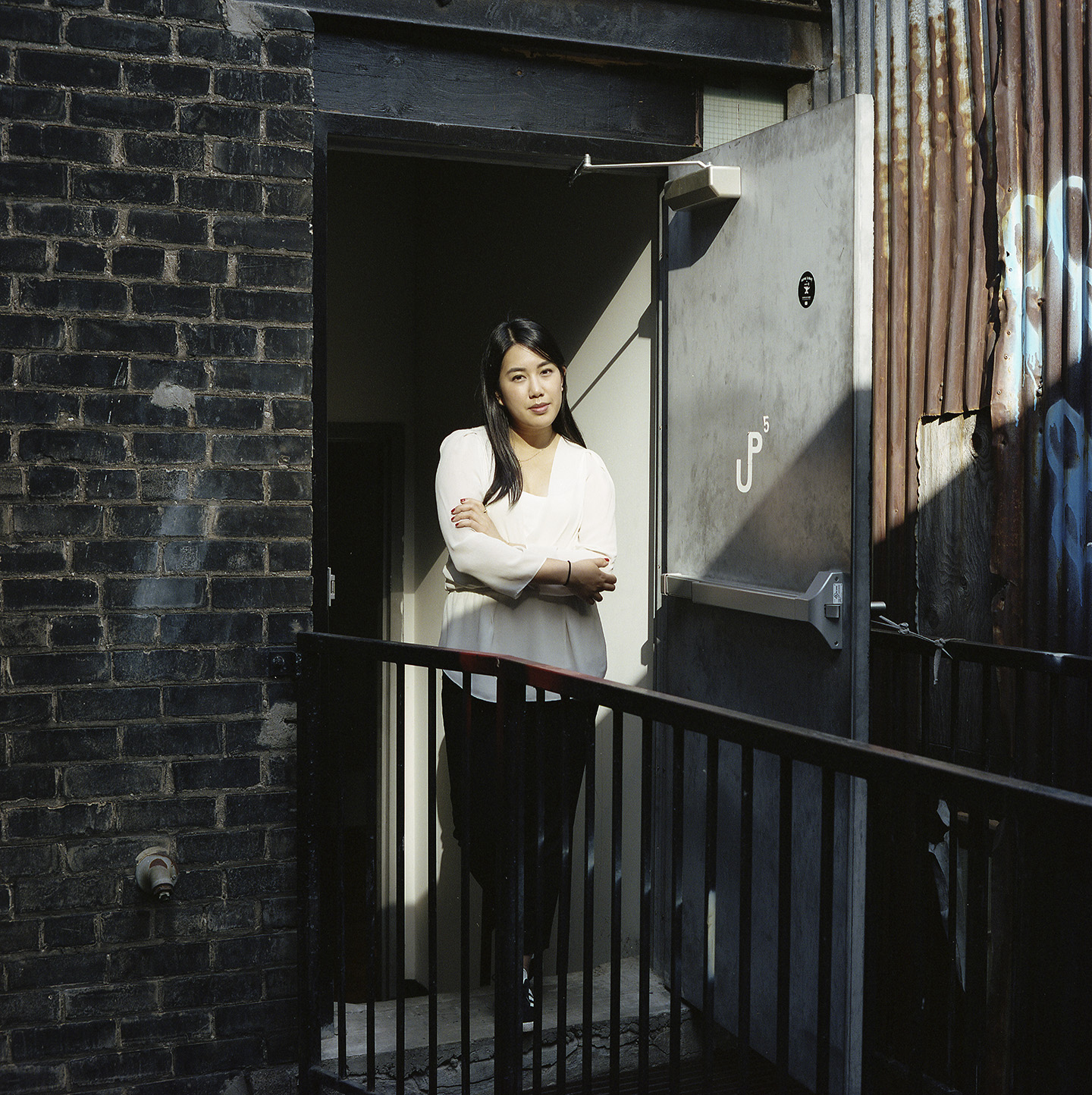
Vivi Nguyen
Wealth Digital Communications, TD Canada Trust
Even though I feel there are many hardships growing up and being Vietnamese, I also feel there are so many silver linings and benefits to being Viet and being part of the Vietnamese community. We are fortunate to hold onto a piece of tradition that not many other people may have. I enjoy taking part in the practices that give me an identity as a Vietnamese. It's almost a feeling of being exotic because our parents come from this foreign land and are able to bring these past traditions with them to this western society that can be seen differently.
Vivi Nguyễn - Dù biết rằng có rất nhiều thử thách khi sinh ra và lớn lên là người Việt, nhưng tôi vẫn thấy mình có rất nhiều may mắn và lợi ích là người Việt trong cộng đồng Việt Nam. Chúng ta may mắn được nắm giữ một truyền thống mà nhiều người không có được. Tôi vui mừng được đại diện cho người Việt Nam. Một cảm giác hào hứng lạ lùng khi có được cha mẹ mình đã tới đất nước này,mang truyền thống lâu đời của họ tới xã hội Tây Phương , mà có thể nhận thấy là hoàn toàn khác biệt với họ.
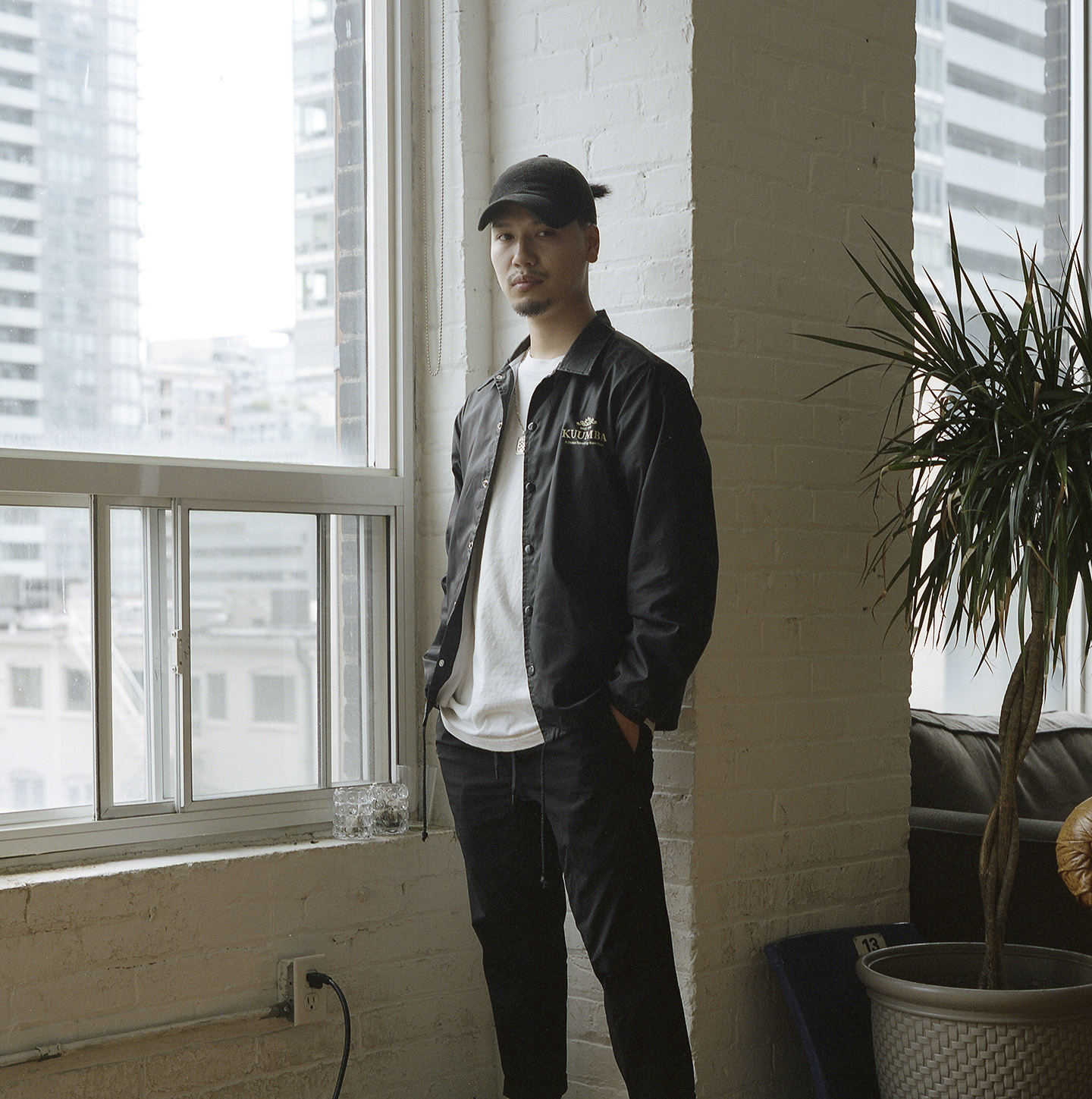
Vincent Tran
Kid. StudioI think of the time when I was in high school; I would have a group of friends that I would hang out with and some of them were Vietnamese. But going to University and only sparsely having Viet friends, the question of what it meant to be Vietnamese came to my mind. It came from a feeling of embarrassment and a realization that I am at a point in my life where I only know so much about my culture and the history of it. Even though I know a bit about the cultural history of Vietnam, it was not knowing the language well and being able to speak it or communicate with family in full that made me think about my own cultural identity.
Vincent Trần - Tôi nghĩ về thời gian tôi còn học ở High school, tôi cũng chơi với một nhóm bạn trong đó có vài bạn là VN. Nhưng khi vào Đại học thì bạn Việt hiếm hoi lắm, nên tôi tự hỏi thế nào là người Việt. Từ chỗ thấy mắc cỡ (xấu hổ) tôi nhận ra rằng tôi biết rất nhiều về văn hóa cũng như lịch sử của nơi tôi đang sống. Mặc tôi biết rất ít về văn hóa lịch sử VN mặc dù không nói được nhiều tiếng Việt để có thể giao tiếp nhiều với gia đình ,thì không có nghĩa là tôi không nghĩ về nguồn gốc văn hóa VN của mình
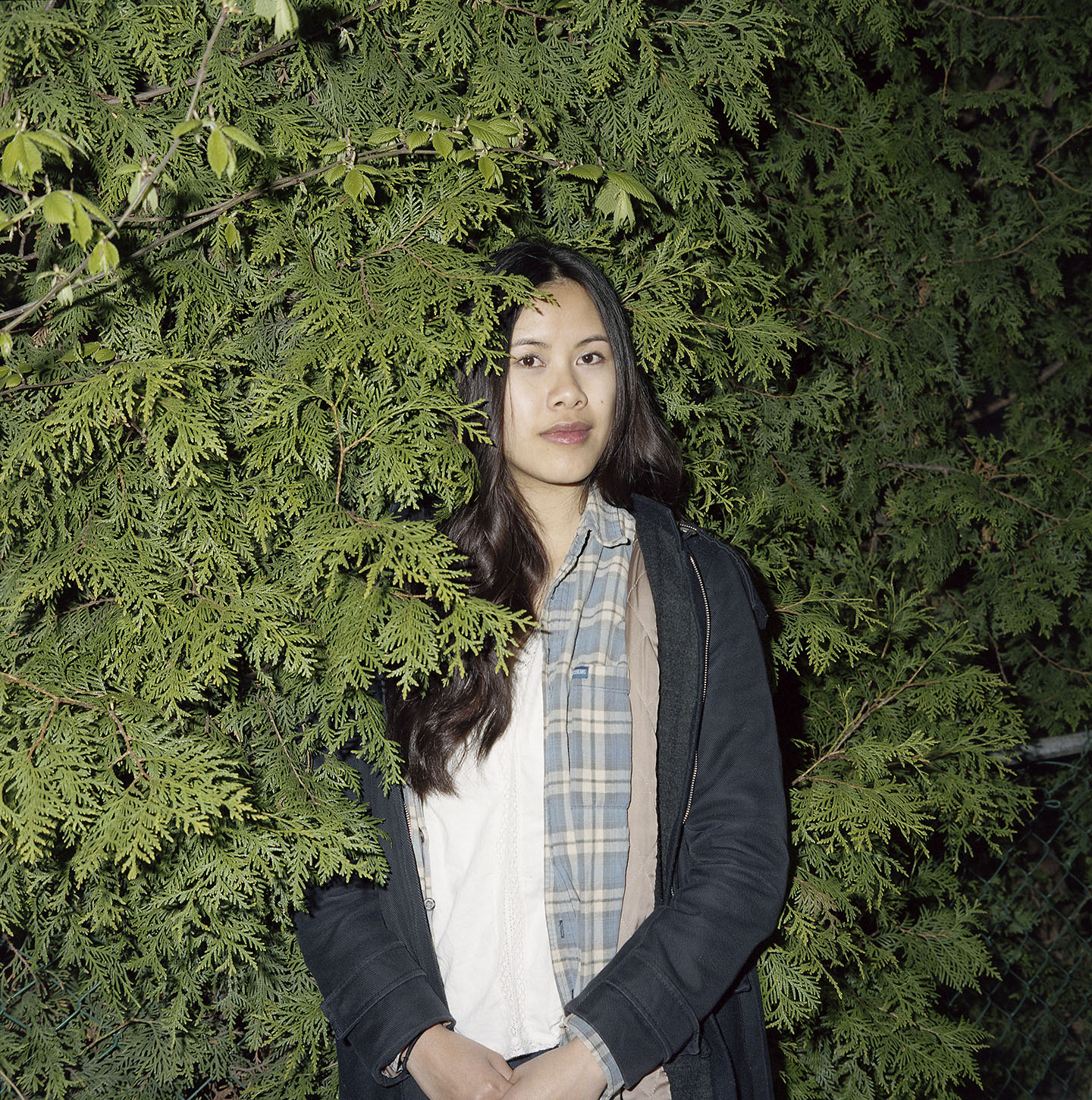
Julia Huynh
Artist
I think what makes me feel Vietnamese is when I would come home and my parents would be speaking in Viet, constantly eating Viet food and participating in the cultural practices my parents were able to do, like praying for family members that have passed away. Even something as simple as watching Paris by Night with my parents made me feel Vietnamese.
Huỳnh Trúc Hạ - Theo tôi,cái mà làm cho tôi cảm nhận mình là người Việt là khi về tới nhà được nghe cha mẹ nói tiếng Việt,ăn đồ Việt chả mẹ nấu hàng ngày, cùng tụng kinh niệm Phật cầu siêu cho gia tiên, thậm chí là xem chương trìnhParis by Night cùng với cha mẹ tôi cũng thấy mình là người Việt.
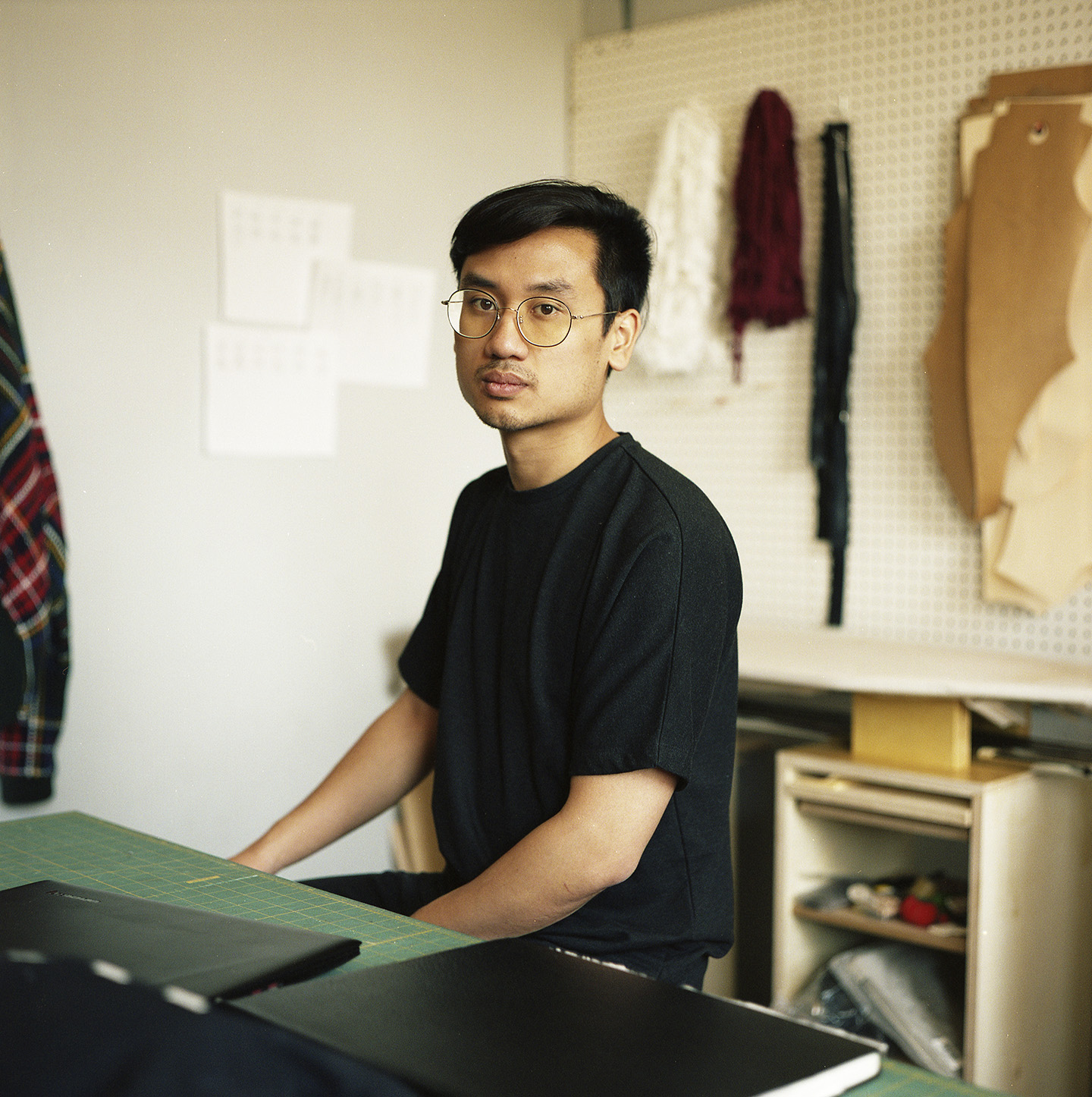
Nam Hoang
Architect / Videographer
I started asking this question of what it meant to be Vietnamese right after university. I was having thoughts about the world and culture and the impacts of it, which led to me to think about my own identity and what kind of Vietnamese I was. I know that the Vietnam my parents had been raised in is now gone, and while it is interesting to me; I know it's a completely foreign idea. The identity I know and grew up on was one that was passed down through oral traditions, usually in settings like around the dining table with family. The question for me at this point is what happens to that legacy and where does it go?
Hoàng Nguyễn Nam - Ngay sau khi kết thúc đại học ,tôi bắt đầu băn khoăn như thế nào là người Việt . Tôi có nghĩ về văn hóa và ảnh hưởng của nó trên thế giới, điều này làm tôi nghĩ tới tình trạng của bản thân tôi là người Việt và là người Việt thế nào. Tôi biết đất nước mà cha mẹ tôi được sinh ra và lớn lên đã không còn nữa nhưng tôi lại muốn tìm hiểu về nó. Tôi biết đây là một ý tưởng hoàn toàn ngoại quốc , nhận biết về người Việt qua sự trưởng thành của tôi được để lại qua truyền thống truyền miệng trong những bữa ăn hàng ngày của gia đình. Tới giờ này tôi vẫn hỏi là chuyện gì đã xảy ra với sự kế thừa đó và nó sẽ đi về đâu.
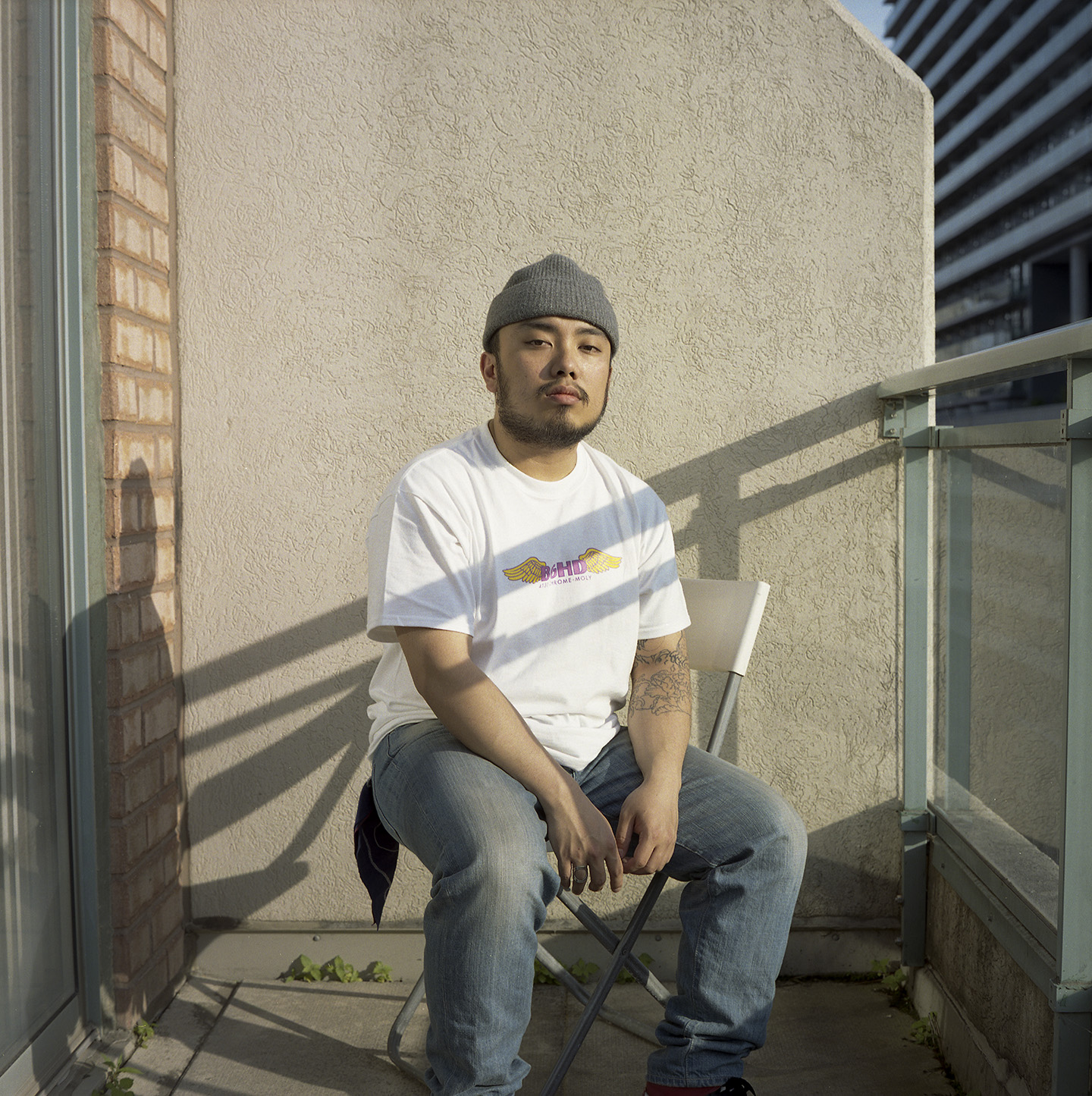
Kevin Pham
Sales Associate, Livestock
I've always felt proud to grow up as a Vietnamese individual. I wanted to prove that being Vietnamese meant we could grow up as regular, contributing Canadian citizens. It meant showing that we weren't just minorities taking up space and causing trouble as delinquents. We can succeed whether it's getting a good job or going to school even though we are minorities—the whole "anything you can do, I can do better" mentality. I feel [Vietnamese have] always been looked down upon, and especially with the stereotype of Viet people being thugs or drug dealers. Even though I understand where that stereotype comes from—I was born and raised in places like Jane and Finch—it's given me all the more reason to prove we are better than that.
Kevin Phạm Quyết - Tôi luôn tự hào về bản thân vì đã được sinh ra là người Việt. Khi trưởng thành tôi muốn chứng tỏ rằng người Việt cũng đóng góp nghĩa vụ cho Canada như bao người Canada khác. Người Việt không phải là thành phần thiểu số chiếm dụng không gian và gây tội phạm,mặc dù là thiểu số nhưng chúng ta thành công trong học tập cũng như công việc, nói một cách bao quát là" bất kì điều gì bạn làm được, tôi sẽ còn làm tốt hơn thế". Tôi thấy người Việt luôn bị coi thường và đặc biệt là định kiến với một số Việt là côn đồ và buôn bán ma túy, mặc dù những định kiến này được hình thành từ khu vực Jane và Finch là nơi tôi được sinh ra và lớn lên, nhưng những định kiến đó càng làm cho tôi muốn chứng minh rằng người Việt tốt nhiều hơn thế.
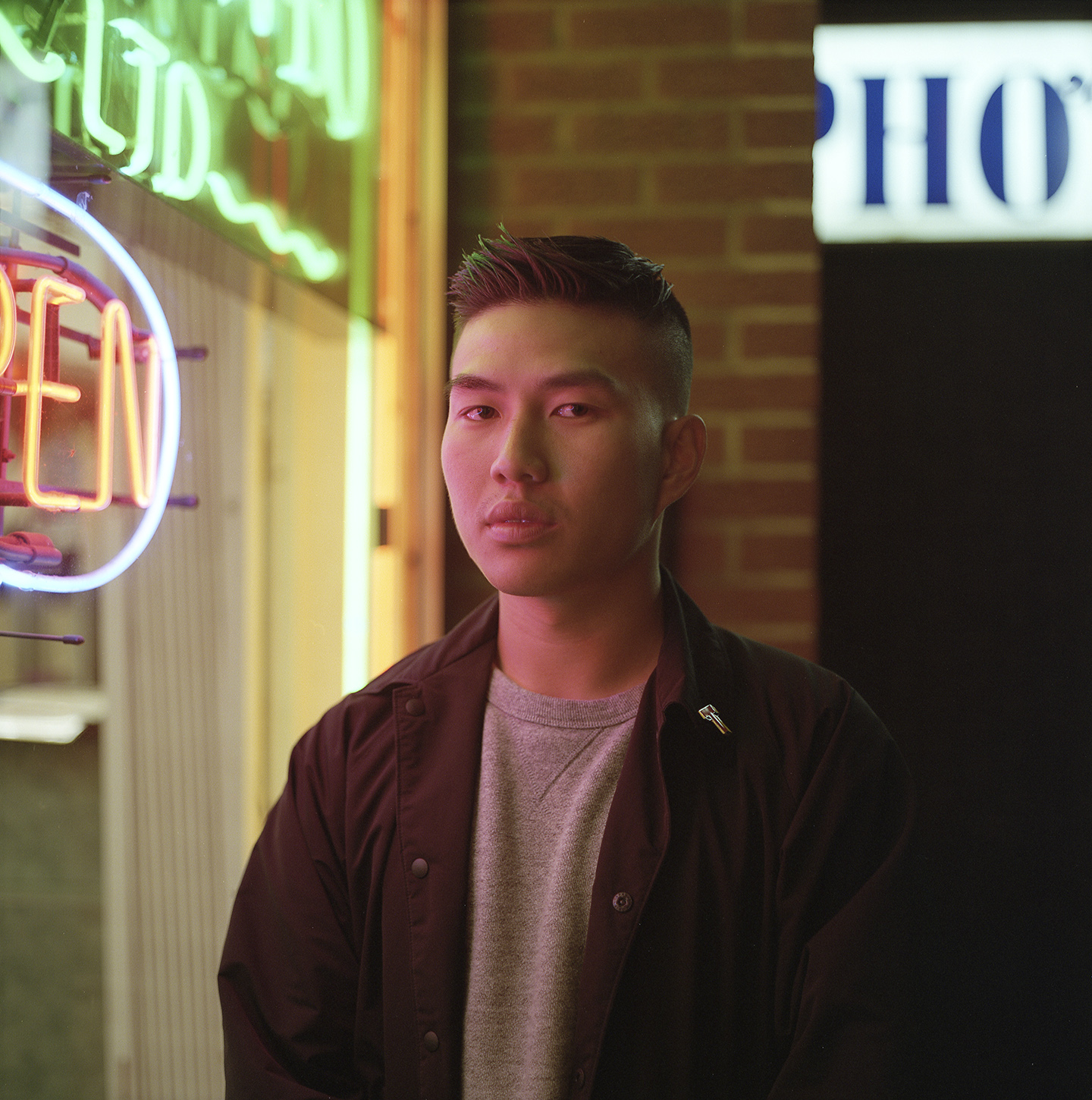
Andy Nguyen
Rapper/Songwriter
I didn't start rapping because it was a way of rubbing it into my mother's traditional Vietnamese upbringing and the stereotypes that come with it, but to prove that it was possible to do anything you wanted and a way of showing pride for the Vietnamese community. My mom would always get excited when we watched an American movie and in the credits someone with the last name "Nguyen" would roll up, but they would always be part of the film crew or a background character. I want to be in people's faces and show them that it's possible to be a Vietnamese and have success outside of the usual stereotypical routes for Asians. It's sad to say, but I can't think of anyone especially within the Vietnamese community that I can look up to for inspiration. That's why I have the drive to be that person for others to look up to in the Viet community.
Nguyễn Khải Phi - Tôi bước vào nghề rapping (ráp) không phải là tìm cách chế nhạo sự dạy dỗ có truyền thống của các bà mẹ VN là phải có một nghề ổn định lương cao, mà chỉ muốn chứng minh rằng mình có thể làm bất cứ điều gì mình muốn, đồng thời mang lại sự từ hào cho cộng đồng người Việt.Mẹ tôi luôn luôn hào hứng xem một bộ phim Mỹ với lòng tin rằng sẽ có người họ Nguyễn trong danh sách những người làm phim hoặc đóng vai phụ trong cảnh làm nền. Về phía mình tôi muốn trình diễn trước mặt mọi người, và để chứng minh rằng người Việt có thể thành công trong nhiều lĩnh vực khác chứ không phải chỉ những lĩnh vực được định kiến theo suy nghĩ của người Châu á. Thật buồn khi tôi phải nói rằng, tôi không tìm được ai đó, đặc biệt là trong cộng đồng người Việt,cho tôi được nguồn cảm hứng,vì vậy mà tôi đã biến mình thành một người mang lại nguồn cảm hứng cho giới trẻ trong cộng đồng Việt Nam.
PHOTOS
VANS
NAM PHI DANG
VANS UNBOUND
Watch This Next
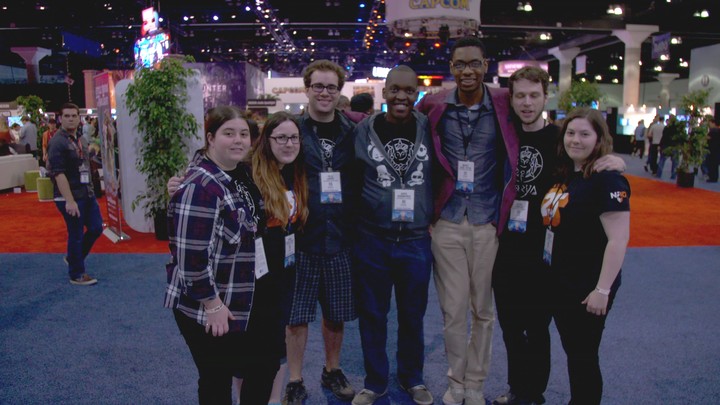
2:17
This Student Project Ended Up at the Biggest Gaming Convention in the World
Kim Liên sưu tầm